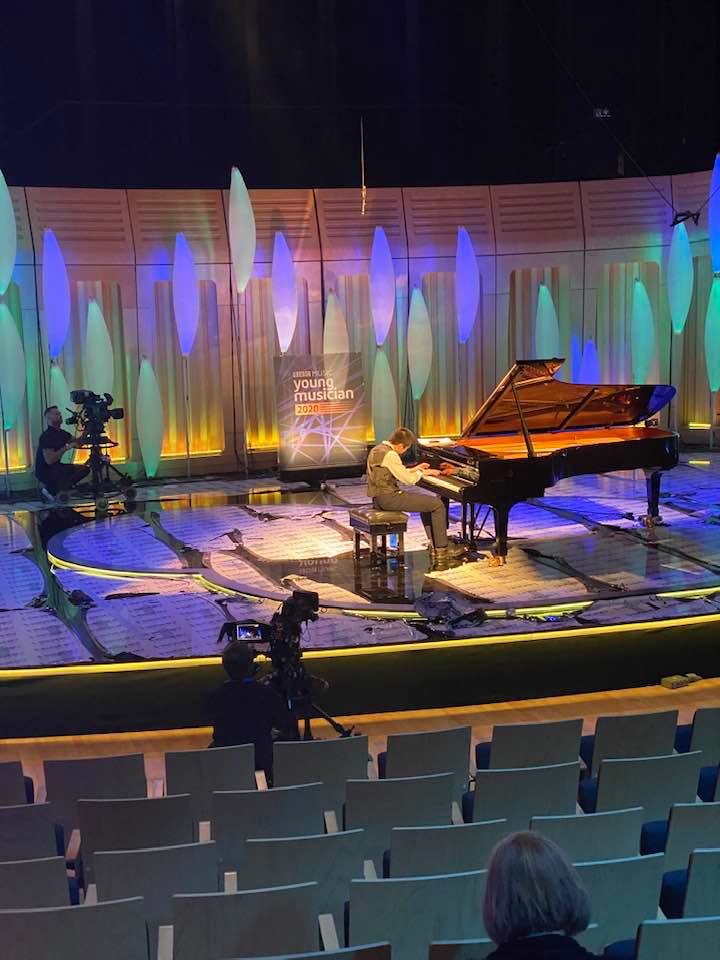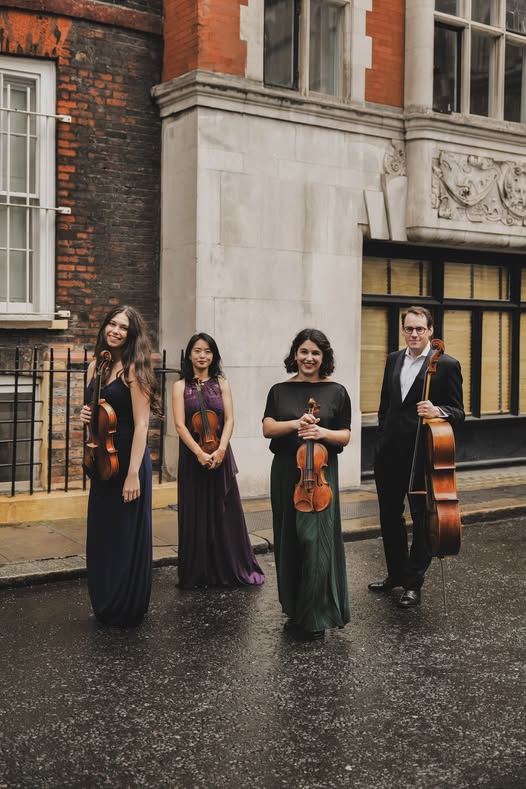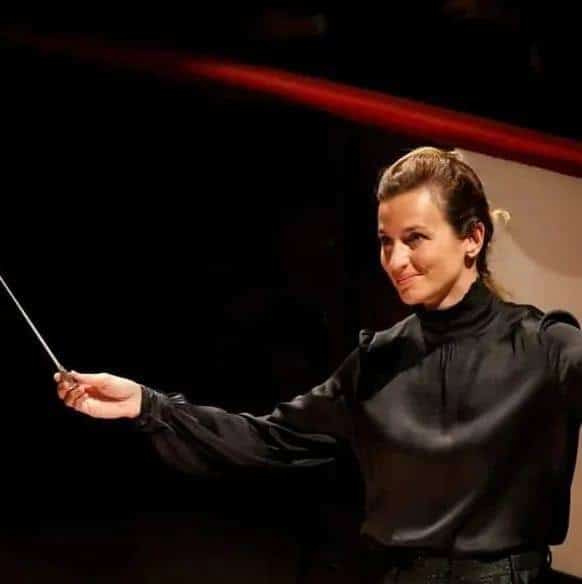Music documentarists slam anti-classical BBC
mainUnder a headline that quotes Slippedisc, the Guardian today projects the anger of filmmakers at the BBC’s anti-classical agenda.
The BBC is failing audiences by offering classical music documentaries that lack revelation and risk, if they are made at all, according to three of the industry’s foremost film-makers.
Sir Humphrey Burton, Tony Palmer and Barrie Gavin have each made some of television’s most acclaimed arts programmes, winning international awards.
But Burton, who revolutionised the broadcasting of classical music for a mass audience in postwar Britain, told the Guardian that today’s offerings are generally “lacking in adventure, curiosity and revelation”.
“Quadruple that,” Palmer said. “Humphrey’s being polite.”….
Read on here.






Populism encroaching on one of the most admired broadcasting organisations in the world. Incredible.
“admired” Surely you jest, sir.
Very much admired. I have travelled extensively, and the BBC is held in high regard just about everywhere but…doesn’t the Bible have something apposite to say?
When I lived in HK (pre-internet) the BBC radio relay was a lifeline. I used to set my alarm for late to hear After Henry through the night!
How about the BBC’s lies about the White Helmets?
http://ronpaulinstitute.org/archives/featured-articles/2018/august/07/more-lies-about-the-white-helmets/
How about possible connections to UK intelligence?
https://thegrayzone.com/2021/04/07/bbc-white-helmets-mayday-uk-intelligence/
For such an extensive traveler, you seem naive and uninformed. The irrelevant bible snark reveals your prejudice.
Spot-on! The BBC has pretty well ‘opted out’ of delivering quality Classical Music coverage on TV.
When Classical Music IS broadcast (eg Young Musician of the Year) it is scheduled ‘out on a limb’… is presented in a fragmented form, and is introduced by some minor ‘celebrity’… presumably to sweeten the otherwise ‘distasteful pill’ – as which, Classical Music seems to be regarded.
Dumbing down, responding to focus-groups, appealing to the lowest common denominator, ashamed of the Western Tradition in music…?? Who know why this has happened…
I stopped watching BBC Young Musician of the Year after 2012, and probably would not have bothered watching any of the episodes from that year (I watched only some episodes), had it not been for the fact that I happened to know a couple of the contestants. They seemed to be spending more time televising the home life of individual contestants than broadcasting their actual competition performances (in the semi-finals, they showed only extracts of each contestant’s programme). Fascinating though it may be to see a little bit of the home life of these kids, and hilarious though it is to see how fake/contrived the broadcast extracts from their lessons are (I know they are fake because I used to be taught by the same teacher as several Young Musician laureates, and, when I mentioned the issue to her, she admitted that it was nothing like the reality), the whole point of the programme is to showcase classical-music performances by exceptional children, right?
Another nadir of BBC classical-music programming was to omit the five-minute new composition from an otherwise complete television broadcast of a Proms concert by the National Youth Orchestra (cannot remember which year, but it was in the 2010s). It is remarkable that the BBC would spend thousands of pounds commissioning an orchestral work for the Proms (I am assuming the BBC would have paid for it, not the NYO, but I could be wrong), only to disown it when broadcasting the associated concert on television (they did not even bother mentioning the omission)… is the Corporation embarrassed at the quality of new works it commissions for (or allows to be included in) the Proms?
Classical music has always had a strained and tenuous role in American culture at large, but it’s very surprising and demoralizing to see this in a nation with a long and proud musical history dating back to Handel and earlier.
It is hardly surprising. You only have to listen to BBC Radio 3 for five minutes most days (there are some exceptions) to appreciate how low the bar is now set and how ‘inform, educate and entertain’ has been replaced with ‘entertain, entertain and entertain’. Knowledge and experience have been replaced with vapidity and banality telling the audience what they should be thinking rather than allowing listeners to have their own thoughts and conclusions.
I look at the wonderful Bavarian Radio and how they promote the BRSO (livestreams pretty much weekly for example) and weep at how little the BBC cares about it’s orchestras and cultural heritage. It is a very very sad state of affairs.
I can’t remember the last time I saw a classical music documentary – or any other kind of programme – on the BBC
“Knowledge and experience have been replaced with vapidity and banality telling the audience what they should be thinking rather than allowing listeners to have their own thoughts and conclusions.”
I think that this is where I struggle most. I want to hear Roderick Williams speaking about his experience as a singer, composer and a more general musician, for example. However, I can’t stand hearing the superficial nonsense from others who believe that, if they pronounce the titles of Italian opera arias with a ludicrously over-the-top accent, they will somehow kid the rest of us that they have an in-depth knowledge and considered interest that they patently don’t.
There is still a smattering of excellent presenters on Radio 3, along with a few good formats that have survived being chopped. However, in so many areas we being taken into a no-mans-land that hasn’t even the credibility of Classic FM.
I’ve said it before and I’ll say it again. It’s not going to be too long before some unfortunate soul has to present the “favourite puddings of the great composers” slot on Essential Classics, or a new programme will appear in the schedules entitled “Colour Symphony”, not about the music of Sir Arthur Bliss, but investigating whether Beethoven liked blue, or if Sir Charles Mackerras really did have a hatred of mauve.
How sad. BBC R.I.P.
Apart from the paucity of programming, it is the dumbing down and patronising of its audience that most annoys and upsets me.
I have just been watching some of the programming one of our leading orchestras devises for its childrens’ programme – quality music introduced and explained in an understandable way with no talking down.
If you go to Paris, Vienna and probably many German cities, infants and primary children are thrilled to attend special concerts and educational programmes led by key artists with no patronising.
How has the BBC falled so far from the aims with which it was set up? While trumpeting an artist season on BBC4, it has announced no further commissioning for the channel. BBC2 carries almost no music, dance, opera.
It seems a downward spiral. Sorry BBC, I don’t watch quiz shows and light entertainment. Most of the decent drama these days is imported.
I urge anyone interested in this subject to click the link to the Guardian article in this blog post. The BBC used to be one of the best TV broadcasters in the world of performing arts content, and its catastrophic decline in this area has been the BBC’s biggest and worst failing. This precipitous decline in the amount and quality of coverage has been one of the biggest causes of the decline in actual music-making in the UK. The statement in the article from the BBC spokesperson is utterly and disgracefully delusional. There is a mountain to climb.
Anti Classical BBC?
You should hear what insiders at the BBC have to say about you.
Yes Miko – and you should hear what insiders who are now outsiders say too! I wouldn’t care less about what the BBC broadcasts but for the fact that everyone who owns a TV is compelled to pay them a massive licence fee, even though it can receive hundreds of other non-BBC stations free of charge. It’s a bit like going to the Pret a Manger in the Strand for a sandwich and finding that they have added a compulsory surcharge of £10.00 to your bill to support the Savoy restaurant next door.
The BBC is obsessed with trying to attract a ‘younger’ audience and the over 50s are deserting it in droves. They claim to be ‘diverse’ but are disenfranchising about one third of the population. They have no moral right whatsoever to impose their licence fee on all TV owners. The BBC is far too big and should be broken up into a populist Entertainment section, which should be funded by advertisers and possibly a subscription fee, and a ‘Public Service’ section that would concentrate on news and educational programmes, which could be funded by a licence fee.
Humpy Burton has a book to sell.. which a) doesn’t invalidate his and others’ comments and b) should be a page turner!
==Humphrey Burton has a book to sell.
Yes – apparently there’s a lot about Bernstein in it. Can’t wait – comes out next week !